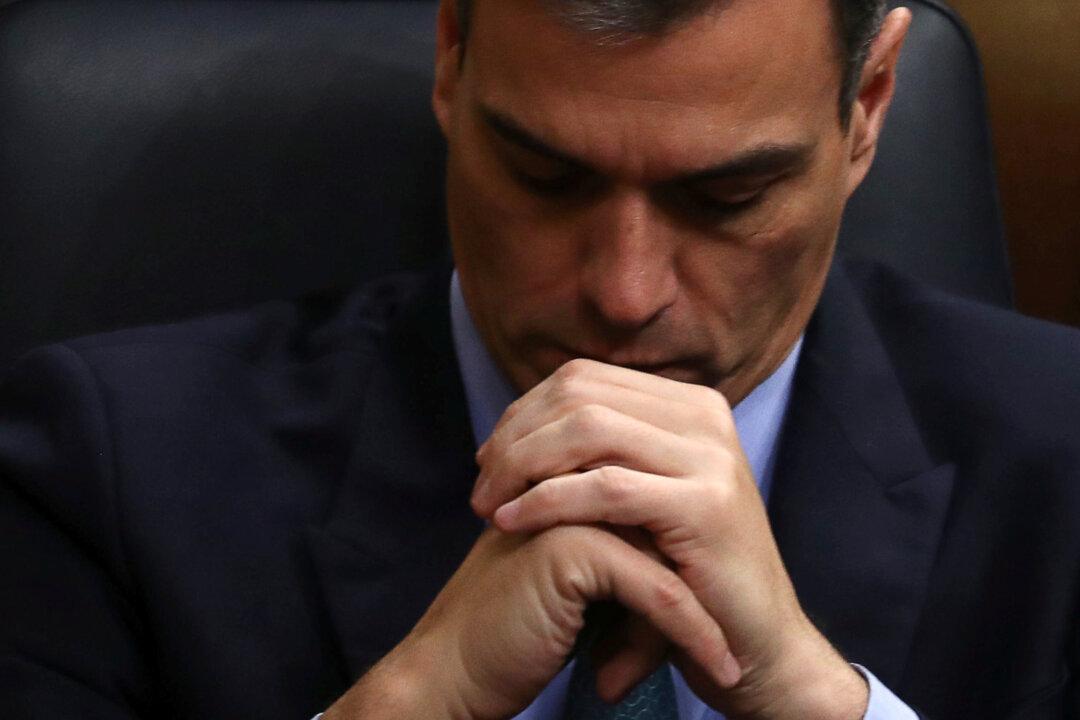MADRID—Spain’s parliament rejected a draft 2019 budget on Feb. 13 after Catalan separatists turned their backs on the government, pushing the country close to an early national election amid an increasingly fragmented political landscape.
Sources in the government and the Socialist party of Prime Minister Pedro Sanchez told Reuters on Feb. 12 that he would call a snap election if the draft was rejected, with April 14 or April 28 the most likely dates.





